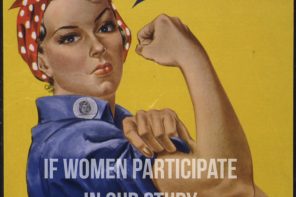The H.B. 2 law claims it will aim “to provide the highest quality of care to women seeking abortions and to protect the health and welfare of women seeking abortions.” The law will require all doctors who perform abortions to have admitting privileges at a hospital within 30 miles of their practice. Also, their facilities must meet the elaborate, high standards of ambulatory surgical centers, which would cost the abortion provider millions of dollars. These standards will not make abortions safer, but rarer.
“By imposing unnecessary A.S.C. and privileges requirements on abortion providers and facilities, H.B. 2 harms women’s health by reducing access to safe and legal abortion,” the American Medical Association and American College of Obstetricians and Gynecologists argued in an amicus brief.”
“The abortion law is framed as a matter of protecting women’s health: it requires clinics to be outfitted as ambulatory surgical centers, at a high cost, though testimony in the lower court trial found no real medical need for this. And the voter-photo-I.D. law has been promoted as a way to combat voter fraud—even though, as the trial in that case demonstrated, there is no real fraud problem. In one case, the actual goal is fewer women being able to choose abortions; in the other, fewer people likely to vote for Democrats getting to cast a vote.”
“In finding H.B. 2 constitutional, the Fifth Circuit interpreted Casey’s undue-burden test as requiring only some “rational basis” for thinking the law will serve a legitimate interest, no matter how speculative or unsupported by the evidence. But the Seventh and Ninth Circuits have blocked similar laws using a different analysis, holding that the undue-burden test requires balancing the obstacles a law imposes against the strength of the state’s justification for it. That means that the Supreme Court, which tends to intervene to resolve such disagreements among Circuits, will likely decide H.B. 2’s ultimate fate.
If the Supreme Court does weigh in and find H.B. 2 unconstitutional, it will most likely do so by endorsing something like the Seventh and Ninth Circuits’ balancing test, not by finding an unconstitutional purpose. That would be a missed opportunity. When courts play along with the fantasy that laws like H.B. 2 are what legislatures say they are, they encourage the suspicion that the legal system values form over substance, cleverness over justice. It isn’t just about abortion. Texas’s voter-identification law, plainly designed to prevent young, poor, and minority voters (i.e., Democrats) from casting ballots, is based on a similarly flimsy pretext of combating the nonexistent problem of in-person voter fraud. Striking down these sham laws using a balancing test may get the right result, but it invites states to keep tweaking the balance of interests versus burdens until it finds a formula—two hundred miles from the nearest clinic? A hundred and seventy-five?—that passes muster in court. It’s up to judges to defend constitutional rights from these disingenuous attacks. That’s their purpose.”






